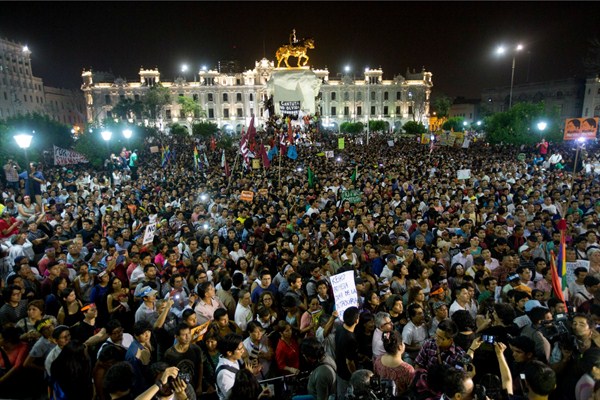On Sunday, Peruvians will head to the polls to elect a new president and 130 members of Congress. But in a campaign season that has been fraught with controversy, few are likely to be satisfied with the results.
Peru's presidential campaign season began with a field of 19 candidates. By last Sunday evening's debates, it had narrowed to 10. Among them were the daughter of a former president now in jail; two former presidents-one of whom was involved in a drug-trafficking scandal; and a candidate that's running from a jail cell.
Described as “crazy” and “chaotic” by some in the press, the election cycle has been filled with controversy and painful reminders of the not-so-distant past. A new electoral law, allegations of vote-buying and controversial decisions about the status of some candidates by the country's electoral judicial body have resulted in protests and charges of politicization. Days ago, the secretary-general of the Organization of American States, Luis Almagro, warned that Peru could be heading toward “semi-democratic” elections.

